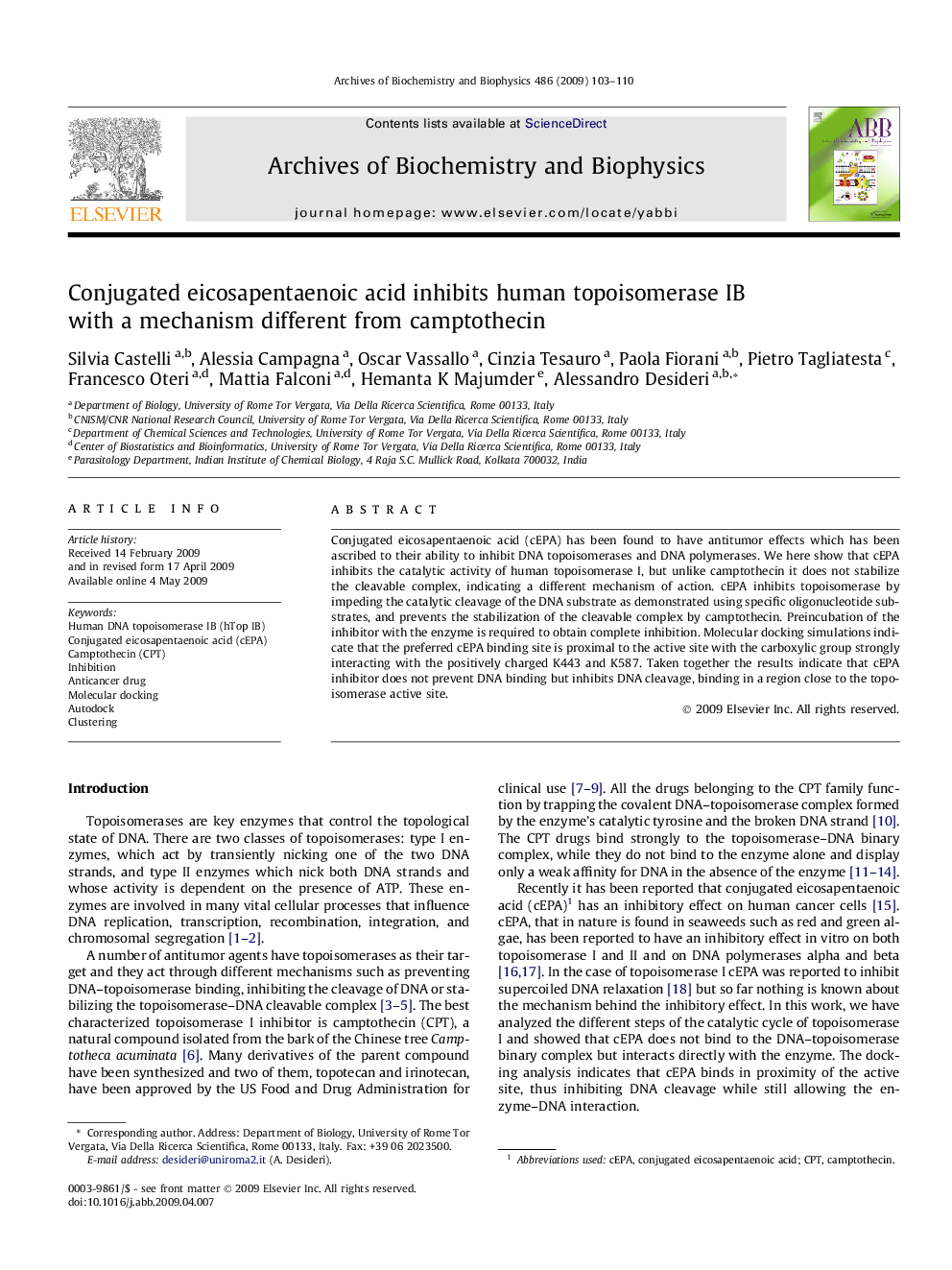| Article ID | Journal | Published Year | Pages | File Type |
|---|---|---|---|---|
| 1926350 | Archives of Biochemistry and Biophysics | 2009 | 8 Pages |
Conjugated eicosapentaenoic acid (cEPA) has been found to have antitumor effects which has been ascribed to their ability to inhibit DNA topoisomerases and DNA polymerases. We here show that cEPA inhibits the catalytic activity of human topoisomerase I, but unlike camptothecin it does not stabilize the cleavable complex, indicating a different mechanism of action. cEPA inhibits topoisomerase by impeding the catalytic cleavage of the DNA substrate as demonstrated using specific oligonucleotide substrates, and prevents the stabilization of the cleavable complex by camptothecin. Preincubation of the inhibitor with the enzyme is required to obtain complete inhibition. Molecular docking simulations indicate that the preferred cEPA binding site is proximal to the active site with the carboxylic group strongly interacting with the positively charged K443 and K587. Taken together the results indicate that cEPA inhibitor does not prevent DNA binding but inhibits DNA cleavage, binding in a region close to the topoisomerase active site.
